At the onset of a second lockdown –

At the onset of a second lockdown –

The traditional live-TV opening of La Scala on December 7 has been called off, at least as far as the public is cncerned.
The board has declared a public event unsafe, amid rising Covid numbers, and has told sovrintendente Dominique Meyer to come up with a Plan B.
This might be an opera in an empty house, but that would rather defeat the purpose.
Lisette Oropesa: ‘This was the last loss of the year for me. I was set to open the new season at La Scala as Lucia di Lammermoor on the 7th of December, in a new, socially distanced production. I would have had the honor of being the first American soprano to open La Scala in a title role since Maria Callas opened as Norma in 1955. And this would have been the first time Lucia has opened the 7th December since 1967, starring the brilliant Renata Scotto, who also was one of my most important teachers of this role.’
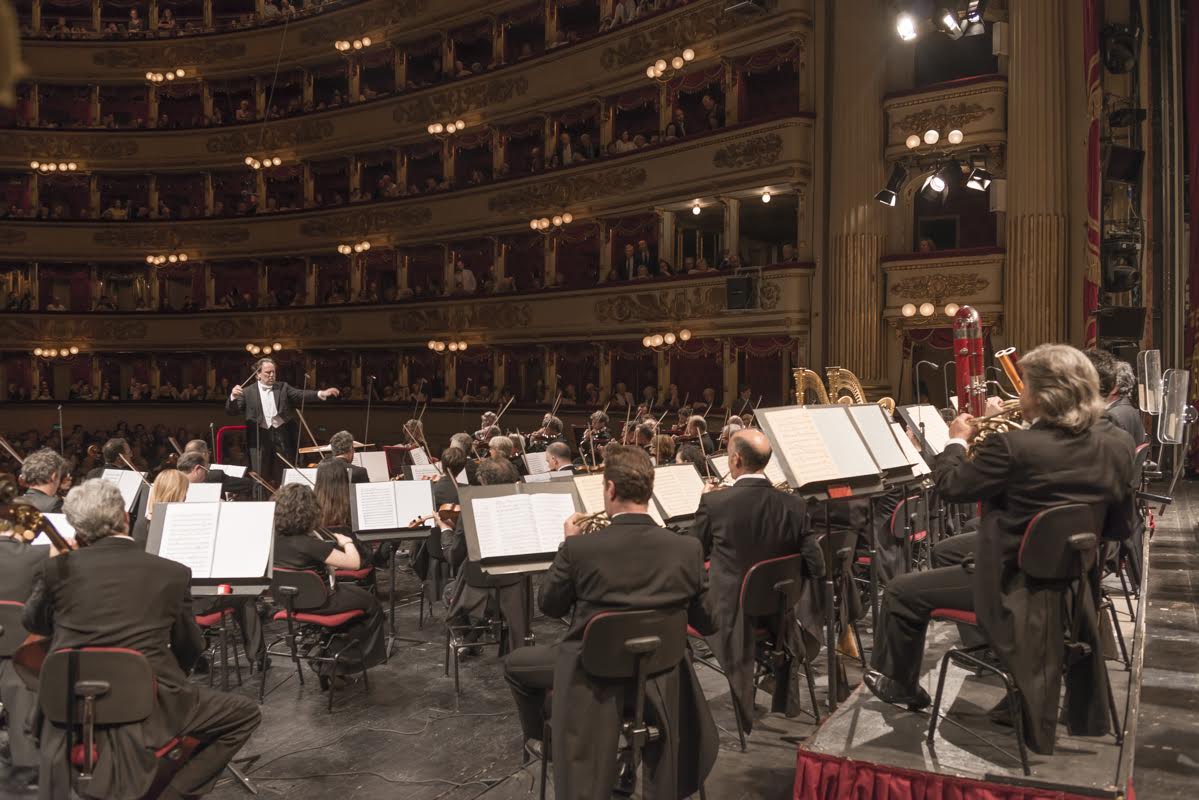
We read of the death of Svetlana Nesterenko, a legendary voice teacher in Volgograd, Minsk and at the Gnessin school and the Bolshoi Theatre in Moscow.
The cause of death was Covid-19.
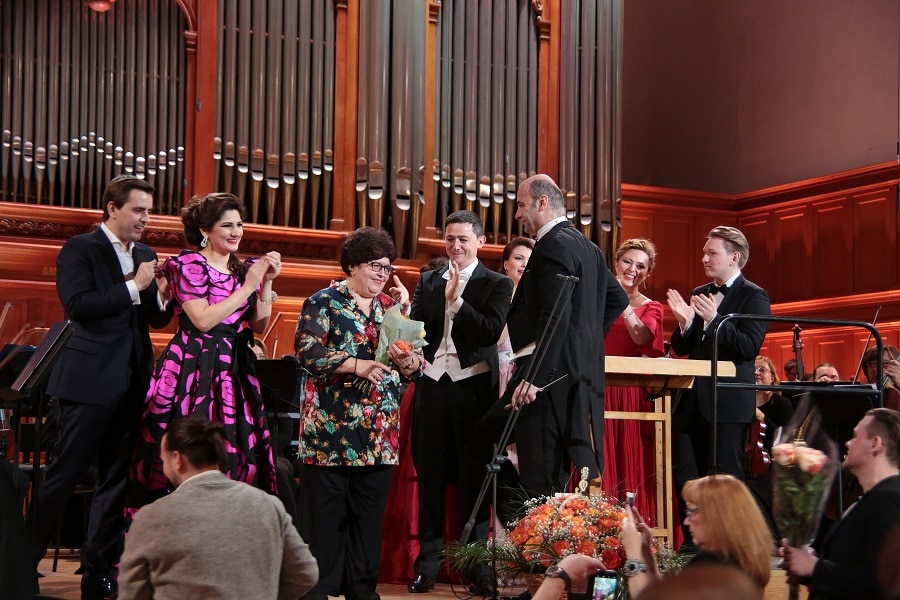
Paul Harvey is an 80-year-old English composer with dementia whose four-note work is top of the download charts in a recording by the BBC Philharmonic.
In advance interviews Paul cited Stephen Sondheim as an infleunce.
Next thing he new, Sondheim was talking to him on Zoom.

Here’s Norman Stinchcombe’s Slipped Disc review of her CBSO concert this afternoon:
CBSO at Symphony Hall ★★★★★
In her audience address today Mirga Gražinytė-Tyla reminded us that Brahms Symphony No.3 was the CBSO’s last piece before lockdown, and eight months later it was again. Good to see that during the hiatus the orchestra’s music director has retained her sense of humour. She hoped we’d all be able to see their opera performance next March which is – nudge, nudge – Verdi’s A Masked Ball. Nice one Mirga. She concentrated on the symphony’s many ambiguities, both musical and of mood. Covid separation gave the wind and brass greater prominence and slimmed down the string sound – more like the balance Brahms would have known – perhaps exaggerated by my perch on the fifth floor. The symphony’s tonally shifting opening was genuinely disturbing, while the benedictory ending was achieved after the CBSO’s energized finale, thrusting and jabbing to-and-fro. The intermezzo was gorgeous, those prominent winds a great delight, and Mirga was always attentive to Brahms’ desire for playing that was both mezzo voce and espressivo.
Ligeti’s Concert Romanesc is a Mirga favourite, usually an encore, here a wacky and whimsical opening item. An apt one for the long delayed debut of the orchestra’s new leader Eugene Tzikindelean, the Romanian revelling in his countryman’s artful gypsy fiddle pastiche. Mozart’s sunny, charming but demanding Bassoon Concerto showcased the CBSO’s Nikolaj Henriques. Mozart uses the soloist as joker and acrobat, leaping from top to bottom registers, and Henriques was agility itself. In the aria-like andante Mozart allows him to be romantic hero and Henriques was utterly charming.
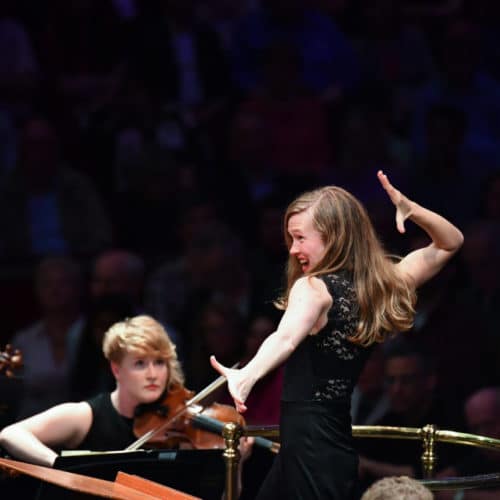
Second performance today at 6pm. Then lockdown again.
London’s Southbank Centre has recruited Toks Dada as head of classical music from next month.
He is presently classical programme manager at Birmingham’s Town Hall Symphony Hall, where he has one orchestra to deal with. At the South Bank he’ll have a fistfull, all angry at the centre’s steady dereliction of classical music.
We wish him well.

From his bio:
Progressive in his thinking, most recently Toks presented new approaches to attracting new audiences and engaging young people at the International Society for the Performing Arts Congress and the Association of British Orchestras Conference.
Toks has previously been a Board Director of Sinfonia Cymru, Executive Chair of REPCo (a student arts enterprise initiative based at the Royal Welsh College of Music & Drama), and a participant on the Association of British Orchestras’ Find Your Way programme for senior and emerging leaders.
Toks holds a Masters in Arts Management and Bachelor of Music degree from the Royal Welsh College of Music & Drama.
The death has been shared of Patmore Lewis, who joined the Metropolitan Opera orchestra in 1977. He was 69.
His fellow-musicians say: ‘He was humble and gracious, and somehow always made those around him feel good. His impact on everyone was such that we were always happy to see him, whether it was in the pit, the C level rehearsal room, or laughing with us in the cafeteria.
‘A warm and gentle soul was lost to us and we will never forget him.’
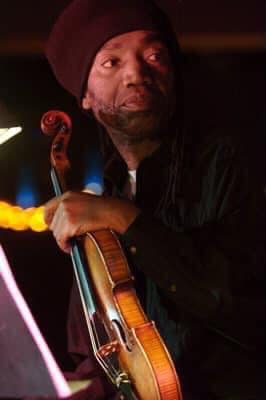
Yannick Nézet-Séguin adds: ‘Another sad and huge loss in our Met Orchestra family. RIP dear Patmore Lewis. I will never forget your smile, your kindness, your warmth, your dedication.’
UPDATE: Official Met posting: The entire Met family was saddened yesterday to learn of the passing of Patmore Lewis, a violinist in our orchestra for more than four decades. He was 69 years old. Patmore grew up in the Virgin Islands and first began performing with the Met Orchestra in the late 1970s, becoming a member of the pool second violin section in 1981. In addition to his work at the Met, he was an all-around musician and both wrote and played music in other idioms—from jazz to hip hop and Latin. He also gave a solo recital at Carnegie Hall in the 1990s. We send our condolences to all those who loved and admired Patmore and mourn the loss of a wonderful artist and colleague.
We have been sent an official English version of a letter sent to Chancellor Merkel by the Conference of German Music Directors. They are not happy with the shutdown.
Dear Chancellor Dr. Merkel, Minister of State for Culture Prof. h.c. Grütters,
For the second time this year, Germany’s cultural landscape has been silenced. In contrast to March, however, theatres and concert halls have since been proven to be safer than most of the nation’s facilities and are excellently equipped to conform to the health and safety requirements of the current pandemic. Nevertheless, the entire cultural sector has once again been promptly axed. Yet as long as our children and grandchildren are sitting in crowded school buses, trains and poorly ventilated classrooms and whilst domestic flights are being subsidized to the tune of billions, we find it more than difficult to believe in the effectiveness of these measures. Moreover, despite your lipservice, a bitter suspicion is encroaching upon us that the value of culture has been so lowered these past months that your first solution to rising infection rates seems to be:”If it’s art, then we can do without it!”
Seemingly regarded by you as mere providers of leisure and entertainment, we are acutely aware of our responsibility to our musicians, our audiences and also to society as a whole. The solidarity demanded can only be afforded by all if parts of our society are not robbed of their livelihood. Especially in the field of culture there are now countless self-employed, freelancers, employees and those in mixed forms of employment who are once again on the verge of financial ruin through no fault of their own. This has occurred in spite of the fact that there have been many months to find adequate solutions for these groups of people.
For many, your newly imposed silencing of culture is also a loss of identity. Money alone cannot fill this void. As the pandemic progresses, we demand evidence-based decisions from our politicians for the cultural sector. We call for music schools nationwide to be left open in November and in this respect to be put on an equal footing with schools. This would be an opportunity for politicians to show how important cultural education is for our society. We request cancellation fees amounting to 75 percent of the negotiated fee or the average monthly wage for freelancers.
Let us work together to find viable solutions. Solutions which protect people and at the same time preserve the cultural nation of Germany.
It’s not what you say, but how you say it – or in German, “Der Ton macht die Musik” (literally “the sound makes the music”) – that’s what we’re all about!
GMD and Chief Conductors’ Conference
DER VORSTAND
Prof. Marcus Bosch (V.)
Will Humburg
Mihkel Kütson
Marc Niemann
Eckehard Stier
EHRENMITGLIEDER
Prof. Dr. Peter Gülke
Prof. Dr. Hartmut Haenchen
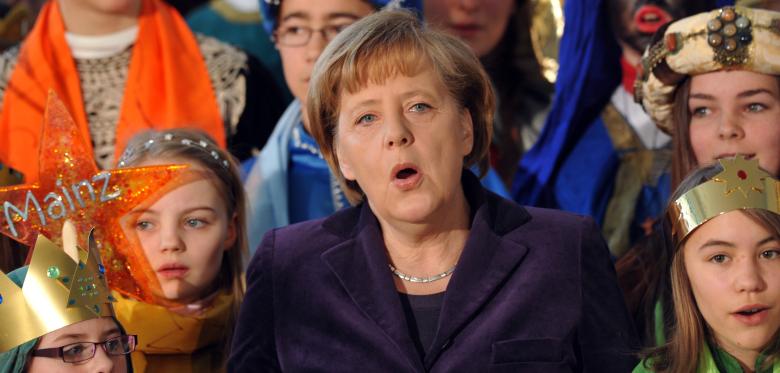
During lockdown, the Sydney Symphony rebranded.
Sydney Symphony Orchestra Director of Marketing Luke Nestorowicz said: “We’re excited to present the latest iteration of the Sydney Symphony Orchestra, casting classical music in a fresh 21st Century light. This is a bold step in the Sydney Symphony Orchestra’s almost 90-year history and a reimagination of classical music in a contemporary context.”
Really?
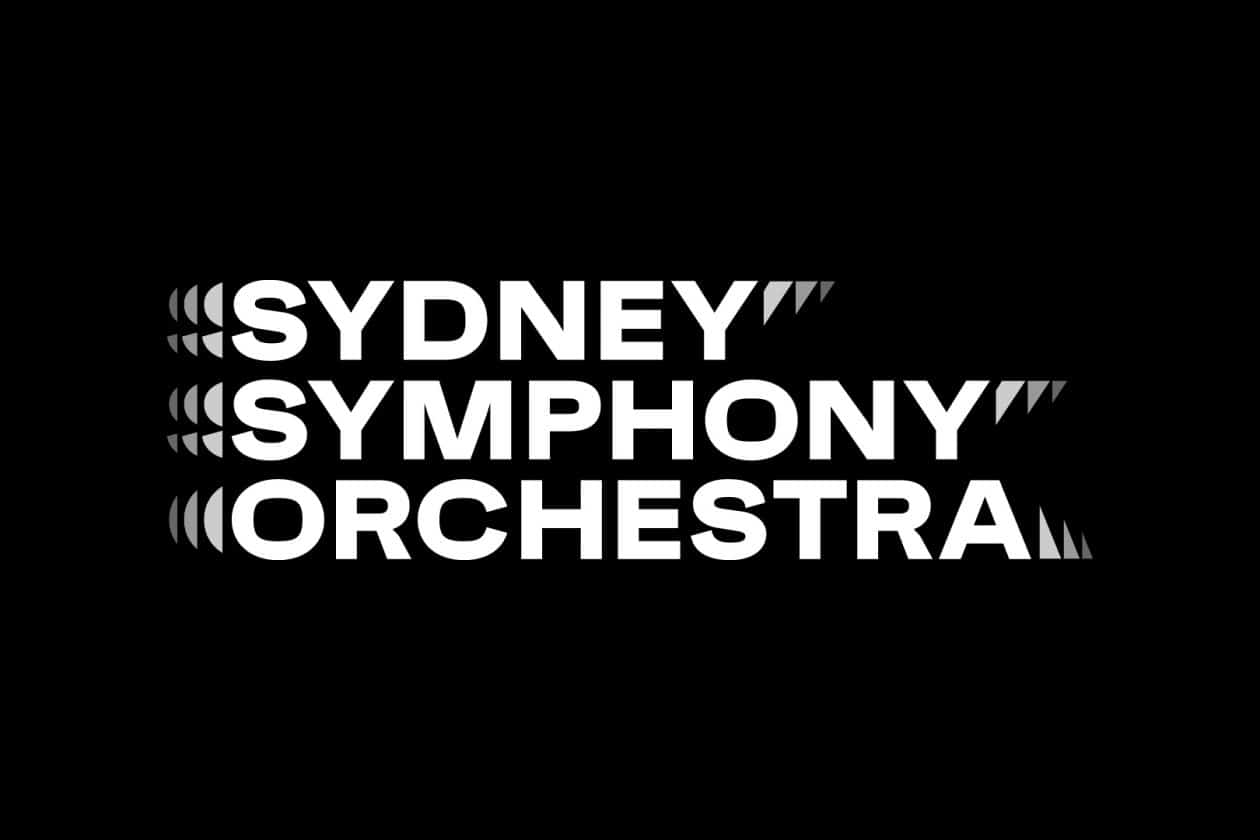
Press release:
After carefully weighing options, in accordance with recommendations from global health leaders, Houston Grand Opera has made the difficult decision to cancel the remaining mainstage productions for the 2020–21 season. The company now plans to resume live, in-person performance in the fall of 2021.

The Hollywood agent Cheryl Tiano who represented dozens of composers in the movie and games sector has died after heart surgery at the age of 59.
After studies at Berkeley, Cheryl spends severa years running Monday Evening Concerts at the Los Angeles County Museum of Art with contemporary composers of every kind.
From 1993 she worked for the Gorfaine/Schwartz Agency in Burbank.
